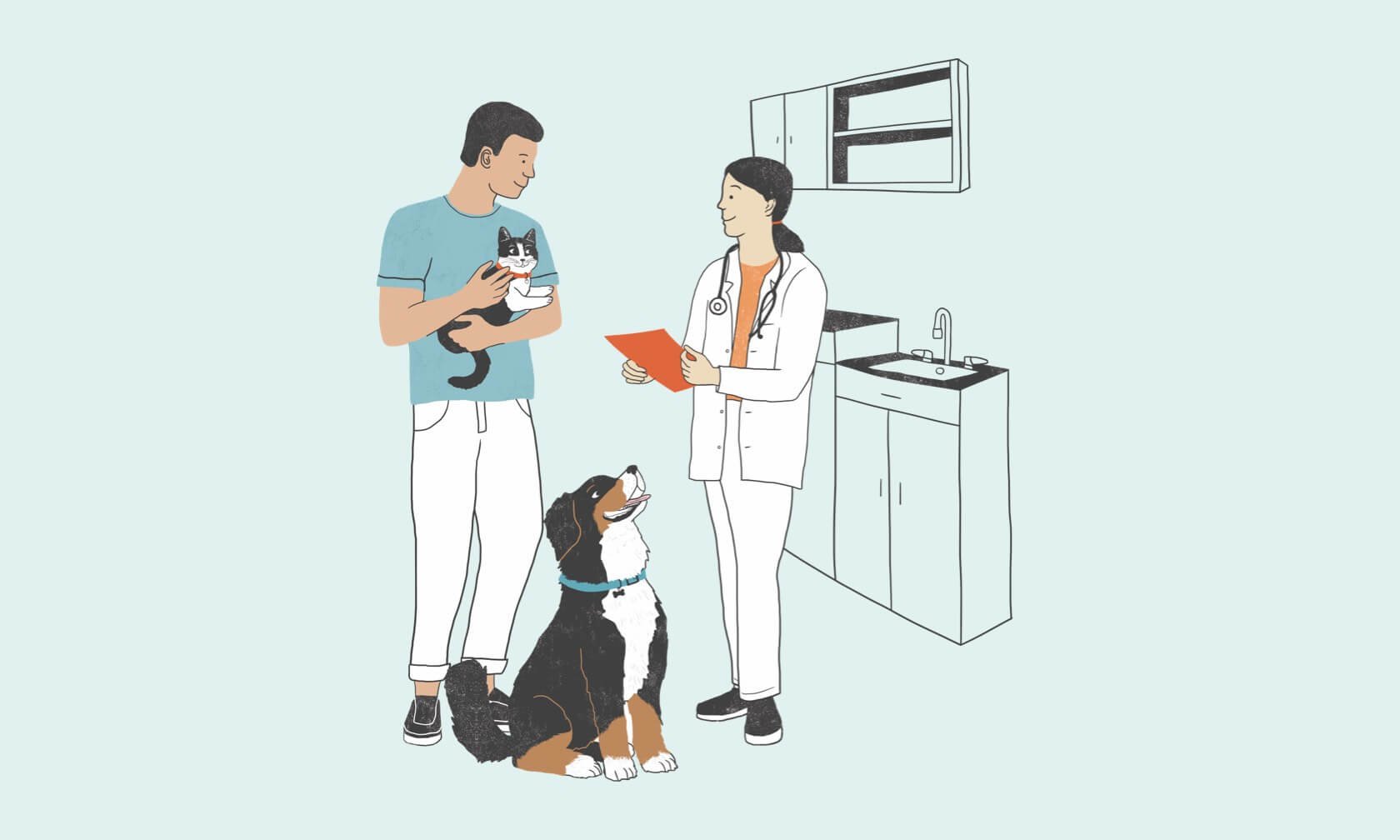Blood tests are a valuable tool for assessing your pet's overall health, diagnosing and monitoring a medical condition, and determining how well your pet is responding to treatment.
There are many different types of blood tests, one of the most important being a complete blood count (CBC).
What Is a Complete Blood Count Test?
Your veterinarian maintains a minimum database for your pet. It's a group of core diagnostic tests that provides the veterinary healthcare team with a complete clinical picture of your pet. A complete blood count is part of those key tests.
Often referred to as a CBC, a complete blood count classifies and counts the different types of blood cells present in your pet. It shows abnormal increases and decreases in those cells, which can indicate an underlying disease or issue, like infection, , or immune system diseases.
The cells evaluated on a CBC include red blood cells, platelets, and five different types of white blood cells. The CBC reports their number, size, and shape, in addition to any variations in their appearance. Results outside the normal range can indicate potential medical issues.
Why Is a CBC Test Important for Your Pet?
Your veterinary team can gather a massive amount of information from this single test. Because it's part of your pet's minimum database, it's a simple way for the care team to look for changes in your pet's normal levels. It can also point your veterinarian toward new issues and possible diagnoses.
The earlier abnormalities or changing trends are noted, the sooner a diagnosis can be made, and treatment started. That means your pet has a greater chance of making a speedy recovery, limiting pain and discomfort, and even prolonging their life. Having this test done routinely is one of the best ways to care for your pet.
What the CBC Test Tells Your Veterinarian About Your Pet's Red Blood Cells
Red blood cells carry oxygen to the tissues of the body and carry carbon dioxide back to the lungs to be expelled from the body.
There are several different red cell measurements on a CBC:
- Red blood cell count (RBC)
- Size
- Shape
- Color
- Hemoglobin (HGB)
- Hematocrit (HCT)
Red Blood Cell Count
A low red blood cell count is called anemia. A low blood cell count can indicate a persistent infection, ongoing kidney disease, possibly cancer or other diseases.
A high red blood cell count can indicate dehydration or excitement. A persistently high red blood cell count can indicate a bone marrow disorder.
Size
The size of the red blood cells can also be used as a possible indicator of disease. A low number means the red blood cells are uniform in size. If the cells are large in size, the value will be high. If there's a lot of variation in size, the value may appear normal.
Immune system issues or iron deficiency can cause red blood cells to be small. Vitamin deficiency and bone marrow disease can cause red blood cells to be large.
Color
Abnormal color and shape of red blood cells can indicate certain diseases.
Shape
Various diseases can alter the shape of red blood cells. While a specific disease diagnosis can't be made from an abnormally shaped red blood cell on a CBC alone, it does indicate the need for further testing.
Hemoglobin (HGB)
The hemoglobin (HGB) levels indicate the oxygen-carrying capacity of the red blood cells. If low, it can mean the blood can't carry enough oxygen to the tissues of the body and remove carbon dioxide. Low levels can be associated with certain medical issues such as poor nutrition, kidney disease, infections, or toxins.
Hematocrit (HCT)
The hematocrit (HCT) calculates the percentage of red blood cells that make up the blood compared to the fluid. This value is used to assess your pet's hydration level and diagnose anemia.
What the CBC Test Tells Your Veterinarian About Your Pet's Platelets
Platelets, also called thrombocytes, are needed to prevent or stop bleeding. Widespread, spontaneous bleeding can occur if the number of platelets falls below a certain critical level. Various medical conditions, such as infections, serious systemic illnesses, immune disorders, or bone marrow disease, can cause the platelet count to be low.
Elevated platelet counts are generally associated with excitement or exertion. In rare cases, it can indicate an underlying issue, such as bone marrow cancer.
Young platelets are large, which indicates that the bone marrow is making new platelets. Platelet size is important when a veterinarian is trying to determine if a pet with low platelets responds to treatment.
What the CBC Test Tells Your Veterinarian About Your Pet's White Blood Cells
White blood cells play a major role in the function of your pet's immune system. They protect their body from infectious organisms, such as bacteria, viruses, fungi, and foreign material entering the body.
Five types of white blood cells work independently and together.
Lymphocytes
This specialized white blood cell produces antibodies, kills tumor cells, protects against pathogens (viruses, fungi, bacteria), and helps control the immune response.
Elevations are caused by certain hormones, infections, chronic diseases, and leukemia. Decreases are most commonly caused by corticosteroids, both naturally occurring in the body or administered.
Monocytes
These are the largest white blood cells and play an important role during infection, inflammation, tissue injury, and repair. Elevations are associated with long-term inflammation.
Eosinophils
These cells function in parasite killing, allergic disease, and asthma. Parasites, allergic reactions, and inflammation of the intestines, kidneys, lungs, or skin can cause an increase. Decreased numbers can occur with stress and treatment with corticosteroids.
Basophils
These are rare in all domestic animals and are involved in allergic reactions and combating parasites. Elevations tend to be seen with increases in eosinophils. Though increases are uncommon, they can be seen in some dogs with heartworm disease.
Neutrophils
These are some of the first cells to respond when microorganisms, such as viruses, bacteria, or fungi, invade the body so they can be a sign of infection.
When the neutrophil count is elevated on a CBC, it can indicate infection or inflammation. Pets receiving prednisone can have an elevated neutrophil count.
Since the results of a CBC can change over time, it’s important to have your pet routinely tested. While the ins and outs of CBC and other blood tests may seem confusing or overwhelming, your veterinarian is an expert at determining the best course of action for your pet’s health.
ZPC-04200



